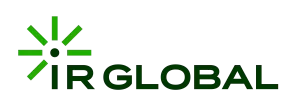- within Strategy topic(s)
- within Strategy topic(s)
- with Finance and Tax Executives
Teamwork generally brings better results than individuals who fail to collaborate. How do you build these teams?
In his book "Good to Great", Jim Collins shares the
'bus concept':
...get the right people on the bus, get the wrong people
off the bus, get the right people in the right seats on the bus and
then work out where the bus is going...
Let's look at building teams in more detail.
The Right People
- The right people understand the organization's goals.
- They must have the ability to help achieve those goals.
- Circumstances change. Someone who is a good fit today might not be the right person in the future.
- Leaders should act quickly when people are no longer a good fit — it's best for both the business and the individual.
In the Right Roles
- Even the right people can fail if they're in the wrong role.
- Some people thrive as Finders (building relationships, sales, development, marketing).
- Others are Minders (managing teams, coordinating efforts, keeping things organized).
- Then there are Grinders (doing the detailed, accurate work).
- If people are mismatched to their natural skills, frustration and poor performance are likely.
High-performing teams understand:
- The context of their work (values, goals, strategy).
- The reciprocal nature of work (contributing in order to gain rewards).
- Their job description and what success looks like.
- How to get help from managers, mentors, and colleagues.
- How they'll be acknowledged and rewarded.
- The consequences if things go wrong.
- Their career options and pathways for growth.
Knowing How to Do It
Effective teams follow systems and processes that:
- Are clearly designed and based on proven experience.
- Are properly documented so there's no confusion.
- Reduce reliance on individuals by clearly outlining steps.
- Cover a wide range of activities, even simple tasks.
- Are supported with training so nothing is assumed.
- Offer flexibility in unpredictable situations.
- Provide tools and resources to help people grow and succeed.
In a Supportive Environment
A supportive environment:
- Applies to both office and remote workers.
- Is a major factor that attracts and keeps employees.
- Balances care for human needs — health, wellbeing, flexibility, mobility, fun, recognition, and development.
- Doesn't just happen; leaders must actively create it.
- Boosts productivity because success energizes people.
With Motivation
About motivation:
- It can be difficult to define and measure.
- There are no quick fixes or "magic bullets."
- Long-term success depends on discipline, even when motivation is low.
- Motivation is largely self-driven — people must find their own formula for excitement and purpose.
- Leaders can provide pathways to help high performers stay excited.
- Asking people what motivates them sparks reflection, even if they don't have a clear answer.
The content of this article is intended to provide a general guide to the subject matter. Specialist advice should be sought about your specific circumstances.
[View Source]

